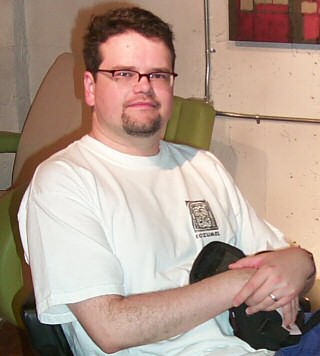 Software developers like Jeff Atwood have had a major influence on the greater development community over the years. For those just starting their careers, or for those with years of experience, both groups can benefit from reading some of Atwood's content on his blog, Coding Horror.
Software developers like Jeff Atwood have had a major influence on the greater development community over the years. For those just starting their careers, or for those with years of experience, both groups can benefit from reading some of Atwood's content on his blog, Coding Horror.
According to Atwood, his computer software developer journey began in the 1980s with the TI-99/4a microcomputer by Texas Instruments, where he learned the trade by using multiple versions of Microsoft BASIC. In the 1990s, he moved to Visual Basic 3.0 and Windows 3.1 systems, as well as writing Pascal code for Delphi.
In 2004, Atwood launched Coding Horror, which is a website devoted to keeping track of developments taking place throughout the software development field. Atwood explained that he creates public blogs after researching topics he finds intriguing. He also noted that he believes readers should not hesitate to email or comment about his work, because he believes that blogging is a two-way street between writers and audiences.
In 2005, Atwood moved to California after landing his dream job at Vertigo Software. In 2008, alongside Joel Spolsky, he created Stack Overflow, which later became known as the Stack Exchange, where various Q&A sites are featured. Atwood and Spolsky's ambitions have paid some tremendous dividends, as the Stack Exchange rose through the ranks and is now one of the top 150 largest websites on the Internet today.
Atwood appears to not be satisfied with limiting himself to any particular area. In 2012, he left the Stack Exchange to spend more time with his family, but this endeavor would be short-lived. Unable to keep himself out of the developer sphere, he created the Civilized Discourse Construction Kit and the Discourse open-source discussion platform in 2013, all with the hopes of advancing Internet-based conversations.
The inventing of the CODE keyboard
Atwood's impact on the developer world is not limited solely to improving web discussions. Ars Technica's Casey Johnston explained that Atwood's new CODE keyboard has changed the game for mechanical keyboards, which are extremely loud when users are typing. At its core, the CODE keyboard has two major attractive benefits compared to rubber dome switches.
"First, they activate before they are pressed all the way down (you can feel a tactile bump at this actuation point). Your finger doesn't have to 'bottom out' the key in its well in order to get the key press to register," Johnston explained.
The other advantage, according to Johnston, is that the CODE keyboard is less vulnerable to aging compared to rubber dome switches, which have a lifespan of roughly 5 million presses, less than the 10 to 20 million of mechanical ones.
Johnston concluded that not every computer user will rush to purchase the CODE keyboard, but for active typists, like the folks in the development world, it is a great option.
Software developers and others interested in learning more about Atwood's impressive journey, innovations and the most recent developments taking place throughout their fields should visit CodingHorror.com.